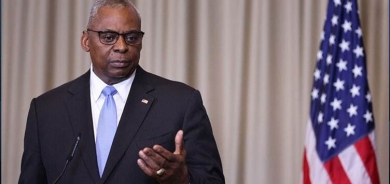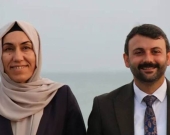Left favourites as France votes on new parliament

parliament and consolidate President Francois Hollande's grip on power as he seeks to ease the pain of a debt crisis in Europe.
At stake in the vote for the 577-seat National Assembly, the lower house of parliament, is Hollande's ability to rule
unfettered as he seeks to reboot Europe's second-largest economy.
On a rainy day across most of France, voting stations opened at 8 a.m. (0600 GMT). They are due to close at 8 p.m., when early returns should give an indication of the size of what polls predict will be a victory for the Socialists and their
allies.
Francois Bayrou, a centrist who ran for president and is now fighting to keep his parliamentary seat, was among early voters in Pau, southwest France.
Another early riser was Marie-Arlette Carlotti, who has to win a seat in Marseille to keep her post as minister for the
handicapped under guidelines Hollande laid down when he named an interim government in mid-May.
A second and final round of voting takes place on June 17, determining the makeup of an assembly that Holland, at the start of a five-year term, hopes will cooperate in the implementation of his tax-and-spend programme.
He has promised to curb rising unemployment and erase a government overdraft without exposing voters to welfare cuts and Greek-style austerity.
France's Senate, the upper house of parliament, is already under left-wing control.
The 57-year-old Socialist, who unseated conservative Nicolas Sarkozy on May 6 and was sworn in mid-May, also needs all the help he can get as he lobbies European leaders, chief among them German Chancellor Angela Merkel, to do more for economic growth.
Hollande wants a fiscal responsibility pact signed by his predecessor to be reworked, arguing that it needs more
pro-growth measures. But Merkel has ruled out resorting to the issuance of common euro zone bonds short of moves towards closer fiscal union.
NUMBERS GAME
Barring an upset, the main question hanging over Hollande is whether the Socialists will win control of the National Assembly on their own, or will have to depend on the Greens and more radical left-wingers to secure the 289 seats needed for a majority.
Polls published in the days before the opening round showed the Socialist Party more or less neck-to-neck with Sarkozy's
centre-right UMP party, with about a third each of the total vote.
But the polls put the Socialists on course to take as much as 46 percent of the total vote with the help of the Greens,
their first preference as coalition partners, and the Left Front, a grouping that includes Communists and other hardliners.
According to an Ipsos poll, vote percentages for the Socialists, the Green and the Left Front could translate into a
combined 292 to 346 seats.
More than 6,000 candidates are taking part in a race where anyone with a score of 12.5 percent of registered voters goes on to the second and final round, and where few win the 50 percent upwards required to secure a seat outright in round one.
Ipsos saw the far-right National Front, whose leader Marine Le Pen took an unexpectedly large 17.9 percent of a first-round presidential vote in late April, winning anywhere between zero and three seats.
(Editing by Andrew Heavens)
Source: Reuters












